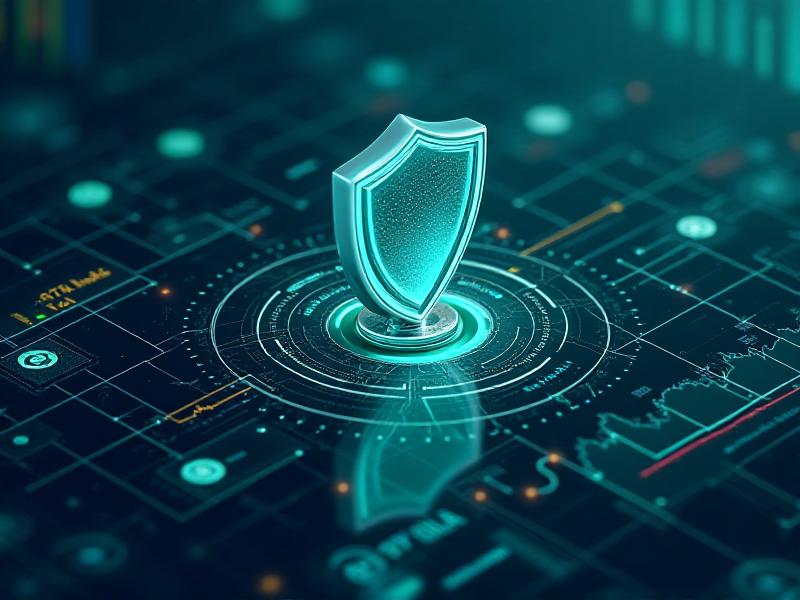
How to Invest in ESG (Environmental, Social, Governance) Funds

How to Invest in Bonds for Stability and Income

The Financial Impact of Social Comparisons

What Is A Planner For Retirement?
How to Use Blockchain for Identity Verification
Apr 24, 2025 By Juliana Daniel
Introduction to Blockchain and Identity Verification
Blockchain technology has emerged as a revolutionary force in various industries, offering transparency, security, and decentralization. One of its most promising applications is in identity verification. Traditional identity verification methods often rely on centralized databases, which are vulnerable to breaches, fraud, and inefficiencies. Blockchain, with its immutable ledger and cryptographic security, provides a robust alternative. This article explores how blockchain can be leveraged for identity verification, its benefits, challenges, and real-world applications.
How Blockchain Ensures Security in Identity Verification
At the core of blockchain's appeal for identity verification is its ability to ensure security. Blockchain uses cryptographic algorithms to secure data, making it nearly impossible to alter or tamper with. Each transaction or record is linked to the previous one, creating a chain of blocks that is immutable. This means that once an identity is verified and recorded on the blockchain, it cannot be changed without consensus from the network. Additionally, blockchain's decentralized nature eliminates the risk of a single point of failure, reducing the chances of data breaches. This section delves into the technical aspects of blockchain security and how it safeguards personal information.
Decentralization: A Game-Changer for Identity Verification
Decentralization is one of blockchain's most significant advantages. Unlike traditional systems where a central authority controls identity data, blockchain distributes this data across a network of nodes. This eliminates the need for intermediaries, reducing costs and increasing efficiency. Decentralization also empowers individuals by giving them control over their own data. Users can choose what information to share and with whom, enhancing privacy and consent. This section explores how decentralization transforms identity verification, making it more user-centric and secure.
Real-World Applications of Blockchain in Identity Verification
Blockchain is already being used in various sectors for identity verification. Governments are exploring blockchain-based digital IDs to streamline public services and reduce fraud. Financial institutions are using it to enhance Know Your Customer (KYC) processes, making them faster and more secure. Healthcare organizations are leveraging blockchain to manage patient identities and ensure data integrity. This section highlights real-world examples of blockchain in action, demonstrating its potential to revolutionize identity verification across industries.
Challenges and Limitations of Blockchain for Identity Verification
Despite its many advantages, blockchain is not without challenges. Scalability remains a significant issue, as blockchain networks can become slow and expensive as they grow. Regulatory uncertainty also poses a hurdle, as governments and organizations grapple with how to integrate blockchain into existing legal frameworks. Additionally, the technology is still relatively new, and widespread adoption requires education and infrastructure development. This section examines the obstacles that must be overcome for blockchain to reach its full potential in identity verification.
Future Trends in Blockchain-Based Identity Verification
The future of blockchain in identity verification looks promising. Innovations such as zero-knowledge proofs and self-sovereign identities are poised to enhance privacy and security further. Interoperability between different blockchain networks will also be crucial for creating a seamless global identity verification system. As the technology matures, we can expect more user-friendly solutions that make blockchain accessible to everyone. This section explores emerging trends and what they mean for the future of identity verification.
How to Implement Blockchain for Identity Verification
Implementing blockchain for identity verification requires careful planning and execution. Organizations must first identify their specific needs and choose the right blockchain platform. Developing a robust architecture that ensures scalability, security, and compliance is essential. Collaboration with stakeholders, including regulators and technology providers, is also crucial for successful implementation. This section provides a step-by-step guide to implementing blockchain for identity verification, offering practical insights for organizations looking to adopt this technology.
Conclusion: The Transformative Potential of Blockchain in Identity Verification
Blockchain technology holds immense potential to transform identity verification. By offering enhanced security, decentralization, and user control, it addresses many of the shortcomings of traditional methods. While challenges remain, ongoing advancements and increasing adoption suggest a bright future for blockchain in this space. As organizations and governments continue to explore its possibilities, blockchain is set to become a cornerstone of secure and efficient identity verification systems worldwide.

The Pros and Cons of Digital Banking

How to Use Fintech for Debt Management

How to Save Money on Home Appliances

Unforgettable Pilgrimages: Top Temples in Andhra Pradesh

The Role of AI in Financial Planning

The Role of AI in Wealth Management

How to Use Options for Income Generation

How to Choose the Right Hostel: 6 Tips to Avoid Bad Stays
Advertisement
